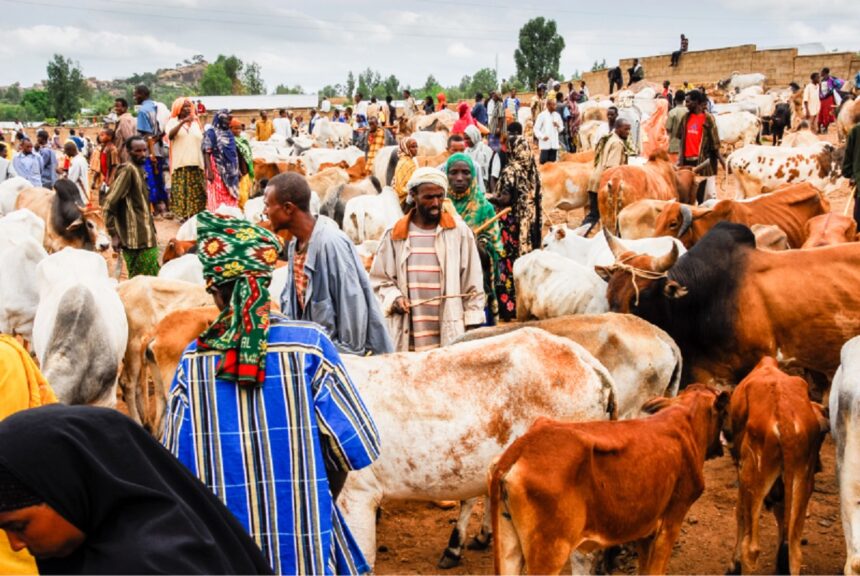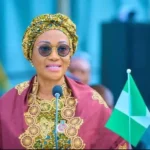Recently, the Minister of Livestock Development Idi Mukhtar Maiha, visited Plateau State on a working visit to assess and identify with the livestock and crop farmers as the tension between the due continues to rise. In this piece, COLLINS NNABUIFE assessed the Minister’s visit and reported the significance towards achieving a robust livestock industry.
In a move that signals a new chapter for Nigeria’s livestock sector, the Minister of Livestock Development, Idi Mukhtar Maiha, embarked on a high-impact, three-day working visit to Plateau State from April 30 to May 2, 2025.
The aim of the visit mission was to ignite a nationwide livestock revolution from the heart of Nigeria’s livestock history.
Against the backdrop of recent violence in Plateau State, the Minister’s visit began on a solemn yet hopeful note. At Government House, Jos, he condoled with the Plateau State Governor, Caleb Mutfwang over recent killings in the state.
Maiha’s central message was one of transformation backed by a federal government’s vision to turn Nigeria’s livestock sector from an underperforming industry into a $74 billion powerhouse by 2035.
“We are not here to merely talk. We are here to build sustainable systems, to modernize, to empower, and most importantly, to unify’, the Minister told the governor.
One of the Minister’s most compelling announcements was the planned establishment of a Model Livestock Village in Plateau State. The Livestock Village, designed as a blueprint for other regions, will integrate pasture fields, dry-season irrigation, veterinary and primary healthcare facilities, educational centers, milk processing plants, and residential quarters for livestock keepers.
“This model will become the beacon of what livestock production can look like in Nigeria. it is not just a facility; it is a vision of prosperity, peace, and productivity, the Minister declared.
Governor Mutfwang lauded the initiative, affirming the state’s readiness to partner with the federal government. “You are not a Minister looking for food to eat,” he remarked. “You are one creating food for Nigeria.”
Throughout the visit, one recurring theme was inclusivity. From the Palace of the Gbong Gwom Jos, Dr. Jacob Gyang Buba, to the stakeholder meeting with groups like the National Sheep and Goat Development Association and the Miyetti Allah Cattle Breeders Association (MACBAN), Maiha emphasized the importance of collaborative ownership.
“It is not just about top-down policies. It is about the butcher, the herder, the dairy farmer, and the policy maker all pulling in the same direction”, he told them.
The journey took a more tangible turn as the Minister moved to Wase Grazing Reserve. Stretching nearly 100,000 hectares, the reserve is set to become the flagship for Nigeria’s grazing reserve revitalization effort.
Maiha’s message at Wase was equal parts development and diplomacy. “We are here to preach peace and restore hope. When you structure livestock production, you don’t just feed a nation, you unite it”, he said.
The Minister mounted a tractor, personally tilling the soil, a moment that sparked applause and symbolised his hands-on commitment. “This is more than symbolism,” said Hon. Hamisu Mohammed Anani, Chairman of Wase LGA. Dr. Sunday Akpa, Plateau State Commissioner for Livestock Development, described the project as a “new dawn for peace and productivity.”
At Kanam LGA, Maiha continued to stress peacebuilding as the foundation for economic development. He received warm welcomes from the Emir of Kanam and other traditional leaders who pledged their full support for the livestock transformation initiative.
In Mangu LGA, the engagement shifted focus to grassroots farmers. Here, Maiha laid out the federal government’s plan to turn grazing reserves into economic hubs that would empower rural communities.
“This is not charity, it is opportunity. If we get this right, conflict becomes cooperation, and poverty gives way to prosperity, the Minister told the community.
The final stop on the tour took the Minister to Bokkos, home of the long-neglected Milky Way Dairy Farm. Once a shining example of Nigeria’s dairy potential, the farm had fallen into disrepair until now.
With 500 hectares of pasture land and dormant processing facilities, the farm is ripe for revival. “We can’t be importing $1.5 billion worth of dairy when we have this,” Maiha said. He vowed to restore the facility and use it as a training and employment hub for youth.
During a visit to the National Veterinary Research Institute (NVRI) in Vom, the Minister was confronted with the dual reality of legacy and neglect.
Read Also: Why EFCC arrested VeryDarkMan — Sowore
Dr. Nicholas Nwankpa, representing the NVRI Director, listed urgent needs; from vaccine scale-up to infrastructural upgrades. In response, Maiha pledged sweeping reforms, including plans to commercialise the institute and reposition it as a West African leader in animal health.
“NVRI must become the epicenter of livestock health solutions, not just for Nigeria but for all of West Africa,” he said.
As the Minister’s convoy departed Plateau State, one thing had become abundantly clear, this was not a ceremonial visit. It was a clarion call for a livestock revolution rooted in peace, productivity, and partnership.
With projects like the Wase Livestock Village, revival of key assets like Milky Way Dairy Farm, and reinvigoration of NVRI Vom, Maiha is scripting a new narrative.
One where every grazing reserve becomes a growth engine, every livestock farmer a proud entrepreneur, and every state a stakeholder in Nigeria’s agricultural renaissance.
“From the honeybee to the camel, no species will be left behind. Together, we will build a livestock sector that feeds the nation, unites our people, and lifts millions out of poverty”, he noted.






